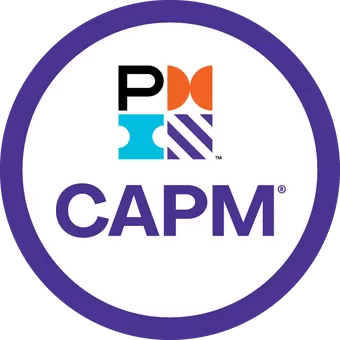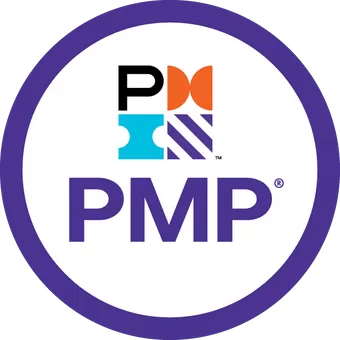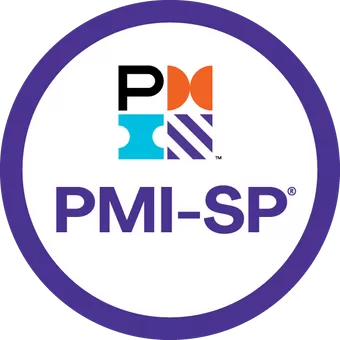
Top Category-Based Project Management Tools, Techniques, And Software
Written By : Bakkah
25 Mar 2024
Trying to manage your projects and team members effortlessly? Do you need project management tools that might help? Effective project management is essential for achieving success and staying competitive. With countless tasks to manage, resources to allocate, and deadlines to meet, businesses rely on robust project management tools and techniques to streamline processes and drive results.
From traditional methodologies to innovative software solutions, the journey toward project success involves navigating diverse options. Let us explore project management tools and techniques, uncovering the strategies and technologies that empower organizations to deliver projects efficiently, achieve objectives, and propel growth.
Join Bakkah and embark on a journey to discover the keys to effective project management in the modern business environment.
Communication and project tracking is essential for every organization. Using PM tools enables project managers to keep their teams organized, on time & on budget throughout the entire project lifecycle.

What are Project Management Tools?
Project management tools are software applications or platforms specifically designed to assist individuals and teams in planning, organizing, tracking, and executing projects efficiently.
These tools provide a range of features and functionalities that streamline project management processes, including task management, scheduling, resource allocation, collaboration, communication, and reporting.
By centralizing project-related information and facilitating team collaboration, project management tools help ensure that projects are completed on time, within budget, and according to specifications.

Benefits Of The Project Management Tools
Project management tools enhance team efficiency and productivity, streamline communication and collaboration, and facilitate balanced resource management by identifying bottlenecks and adjusting team size as needed.
1- Increasing the Team Efficiency & Productivity of the Team Members
It will improve the overall quality of the project. A good Project Management Tool can help you accomplish this goal.
2- The Ability to Communicate & Collaborate More Effectively with Teams
With all your data in one place, you can easily delegate tasks, tag team members in comments, and share documents.
Even the smallest details and plans about a project can be kept up to date by project management Software.
3- Balanced Management of Resources
For successful project delivery, experienced project managers need a resource management strategy that keeps their teams in tip-top condition without overloading them with work or vice versa.
Resource planning encourages healthier standards of work, so it should not be underestimated.
With the best PM tools, you can easily identify bottlenecks and add more people to the team when needed.

Project Management Tools and Techniques
Project management tools and techniques refer to the various methods, strategies, and software applications used to effectively plan, execute, monitor, and control projects.
These tools and techniques are essential for ensuring that projects are completed successfully, and meeting their objectives within the allocated time frame and budget. Here are some common project management tools and techniques:
1. Work Breakdown Structure (WBS)
A hierarchical decomposition of the project scope into smaller, more manageable components, tasks, and deliverables.
2. Gantt Charts
Visual representations of project schedules that show tasks, dependencies, start and end dates, and milestones. Gantt charts help project managers and team members understand the sequence of activities and track progress.
3. Critical Path Method (CPM)
A project management technique is used to identify the longest sequence of dependent tasks (critical path) that determines the shortest possible duration for completing the project.
4. Network Diagrams
Graphical representations of project activities and their dependencies are often used in conjunction with CPM to visualize the project schedule and identify critical paths.
5. Kanban Boards
Visual boards are divided into columns representing different stages of the workflow (e.g., "To Do," "In Progress," "Done"), allowing teams to track tasks and work items as they progress through the project lifecycle.
6. Agile Methodologies
Iterative and incremental approaches to project management, such as Scrum and Kanban, emphasize flexibility, collaboration, and responsiveness to change.
7. Risk Management
Techniques for identifying, assessing, prioritizing, and mitigating risks that may impact project objectives. Risk management tools include risk registers, probability-impact matrices, and risk response plans.
8. Resource Management
Tools and techniques for allocating and managing resources (e.g., manpower, equipment, budget) to ensure optimal utilization and efficiency throughout the project lifecycle.
9. Communication Tools
Platforms and channels for facilitating communication and collaboration among project stakeholders, such as email, instant messaging, video conferencing, and project management software with built-in communication features.
10. Performance Measurement and Reporting
Metrics, KPIs (Key Performance Indicators), dashboards, and reporting tools are used to track project progress, monitor performance against targets, and communicate project status to stakeholders.
These are just a few examples of project management tools and techniques commonly used by project managers and teams to plan, execute, and control projects effectively. The selection and application of these tools and techniques depend on factors such as project complexity, size, industry, and organizational preferences.

Popular Project Management Software
Project management software is a digital tool designed to help individuals and teams plan, organize, track, and collaborate on projects. These platforms typically offer features such as task management, scheduling, resource allocation, budget tracking, collaboration tools, and reporting capabilities.
Here are some popular project management software examples:
1. Trello
Trello is a visual collaboration tool that uses boards, lists, and cards to organize and prioritize tasks. It's known for its simplicity and flexibility, making it popular among teams of various sizes and industries.
2. Asana
Asana is a comprehensive project management tool that allows teams to manage tasks, projects, and deadlines in a user-friendly interface. It offers features such as task dependencies, timeline views, and integrations with other tools.
3. Jira
Jira is widely used in software development and IT teams for agile project management. It helps teams plan, track, and release software iterations efficiently. Jira offers features like scrum boards, kanban boards, and customizable workflows.
4. Microsoft Project
Microsoft Project is a powerful project management software that provides tools for planning, scheduling, resource management, and budgeting. It's suitable for complex projects and integrates well with other Microsoft Office tools.
5. Basecamp
Basecamp is a popular project management and team collaboration platform that offers features like to-do lists, file sharing, messaging, and scheduling. It's known for its simple interface and ease of use.
6. Monday.com
Monday.com is a versatile work operating system that enables teams to manage projects, tasks, and workflows in a visually appealing manner. It offers customizable boards, automation, and integrations with various tools.
No coding skills are required, Monday.com's Work Operating System (Work OS) allows project managers to create their perfect workflow with customizable functionalities.
Whether it's precise project planning, product management, or simple task management, the platform adapts itself to meet your needs.
Features:
- Viewing project data in a variety of ways, including tables, Kanban boards, and dashboards
- Bring project data to life with colorful interfaces
- Using the WorkForms tool, you can customize and share surveys for data collection
- Accessing easy integrations to empower developers, marketers, CRMs, and project managers
- Creating automation rules from a long list of pre-built automation
7. Wrike
Wrike is a cloud-based project management platform that provides features for task management, time tracking, collaboration, and reporting. It's suitable for teams of all sizes and offers flexibility in project management methodologies.
8. Notion
Notion is an all-in-one workspace that combines project management, note-taking, and collaboration features in one platform. It offers customizable templates and databases, making it adaptable to various project management needs.
9. ClickUp
ClickUp is a customizable project management tool that offers features such as task management, goal tracking, time tracking, and document management. It's known for its flexibility and scalability.
As the best project management solution with the most views, ClickUp come at the top of our list.
For those looking to manage their work schedule or plan events with precision, it includes free Gantt Charts as well as lists, calendars, and task-based tabs.
Features:
- List, Board, Gantt, Calendar, Workload, and Map views are available for visualizing project data
- A list of possible operations can be filtered and modified in bulk, or tasks can be created and modified individually
- Configure the features and security of the platform granularly
- Dashboards provide a visual representation of project data
- Todoist, Wrike, Basecamp, Monday, Trello, Asana, Jira, and Trello data can be imported easily
10. Smartsheet
Smartsheet is a platform that combines project management, collaboration, and automation capabilities. It offers features like Gantt charts, dashboards, and integrations with other business tools.
The choice of project management software depends on factors such as project complexity, team size, budget, and specific requirements.
11. Hive tools for project management
Hive simplifies your work in one unified system with configurable project views, dependencies, infinite projects, and dozens of connectors.
Using this software, teams ranging in size from 10 to 1,000 individuals can work together on an array of enterprises and work styles.
Features:
- The time spent on tasks and projects will help you estimate the amount of work that needs to be done in the future
- You can view tasks and projects according to your preferences, such as date, priority, or assigned team member
- With email integrations, you can have incoming messages automatically added to tasks in Hive
12. Zoho Projects tools for project management
Zoho Projects is one of the project management tools which has open-source that can manage projects of all sizes and complexity levels.
There are several features in this app that are similar to those on social networking sites, such as feeds, forums, and debates, and the app is available for both Android and iOS platforms.
Features:
- Users can identify potential bottlenecks with Zoho Projects' Gantt charts
- Zoho Projects gives managers the ability to allocate resources easily and track their use
- Managers can keep track of time spent on different tasks and bill clients accordingly with the app's time-tracking feature
Open Source Project Management Tools
There are several open-source project management tools available that offer various features for planning, organizing, tracking, and collaborating on projects. Here are some popular open-source project management tools:
1. OpenProject
OpenProject is a web-based project management software that offers features such as task management, Gantt charts, Agile boards, time tracking, and document management. It is highly customizable and suitable for both traditional and Agile project management methodologies.
2. Taiga
Taiga is an Agile project management platform that provides features like user stories, sprints, Kanban boards, and backlog management. It offers integrations with popular version control systems like GitHub and GitLab.
3. Redmine
Redmine is a flexible project management tool that supports issue tracking, Gantt charts, wikis, forums, and time tracking. It is highly customizable through plugins and themes, making it suitable for various project management needs.
4. Odoo Project (formerly OpenERP)
Odoo Project is part of the Odoo suite of business applications and offers features such as task management, timesheets, Gantt charts, and reporting. It integrates seamlessly with other Odoo modules like CRM, HR, and Accounting.
5. ProjectLibre
ProjectLibre is an open-source alternative to Microsoft Project and offers features for task scheduling, resource management, Gantt charts, and project reporting. It supports various file formats for compatibility with other project management tools.
6. Freedcamp
Freedcamp is a cloud-based project management platform that provides features like task lists, calendars, file sharing, discussions, and time tracking. It offers a free tier with basic features and paid plans for additional functionality.
7. Restyaboard
Restyaboard is an open-source Trello-like project management tool that offers features such as boards, lists, cards, and activity tracking. It is highly customizable and supports plugins and integrations.
8. TaskBoard
TaskBoard is a simple and lightweight open-source Kanban board application suitable for personal and small team use. It offers features for creating boards, adding tasks, and moving tasks between columns.
9. ZenTao
ZenTao is an open-source Agile project management tool that provides features such as product management, release planning, sprint management, and bug tracking. It is suitable for Scrum and Kanban methodologies.
10. Kanboard
Kanboard is an open-source Kanban project management software that offers features for task management, swimlanes, subtasks, and time tracking. It is designed to be simple and easy to use.
11. GitLab
GitLab is a web-based DevOps lifecycle tool that includes project management features alongside version control, continuous integration, and deployment capabilities. It offers features like issue tracking, boards, milestones, and time tracking.
GitLab is particularly popular among software development teams for managing code-related tasks.
These open-source project management tools vary in terms of features, complexity, and scalability, so it's essential to evaluate your specific requirements before choosing the right tool for your project.
Top Agile Project Management Tools
Agile project management tools are software applications specifically designed to support and facilitate Agile methodologies, such as Scrum, Kanban, Extreme Programming (XP), and Lean.
These tools help Agile teams plan, track, and manage their work in iterative and incremental cycles, enabling flexibility, collaboration, and responsiveness to change.
In addition to Jira, Asana, Trello, and monday.com, here are some other popular Agile project management tools used by teams worldwide:
1. VersionOne
VersionOne is a comprehensive Agile project management platform designed to support large-scale Agile initiatives. It offers features for backlog management, release planning, sprint tracking, portfolio management, and reporting.
2. Targetprocess
Targetprocess is a visual Agile project management tool that supports Scrum, Kanban, and SAFe (Scaled Agile Framework). It provides customizable boards, dashboards, and reports to help teams plan, track, and visualize their work.
3. Pivotal Tracker
Pivotal Tracker is a lightweight Agile project management tool focused on simplicity and ease of use. It offers features for backlog management, story prioritization, task tracking, and progress visualization.
4. LeanKit
LeanKit is a Kanban-based Agile project management tool that helps teams visualize and manage their work using digital Kanban boards. It offers features for workflow optimization, task tracking, and collaboration.
5. Scrumwise
Scrumwise is a user-friendly Agile project management tool specifically designed for Scrum teams. It provides features for backlog management, sprint planning, task tracking, burndown charts, and retrospective meetings.
6. Hansoft
Hansoft is an Agile project management tool suitable for both small teams and large enterprises. It offers features for backlog management, sprint planning, task tracking, resource allocation, and reporting.
7. Agilefant
Agilefant is an open-source agile project management tool that supports Scrum, Kanban, and other agile methodologies. It offers features like backlog management, sprint planning, time tracking, and analytics. Agilefant is highly customizable and suitable for teams looking for a self-hosted solution
These Agile project management tools vary in terms of features, pricing, and suitability for different types of projects and teams. It's essential to evaluate the specific needs and preferences of your team before selecting the most suitable tool.
Microsoft Project Management Tools
Microsoft offers several project management tools, each catering to different needs and preferences. Some of the key Microsoft project management tools include:
1. Microsoft Project
Microsoft Project is a comprehensive project management software designed for planning, tracking, and managing projects of all sizes. It offers features such as task scheduling, resource management, Gantt charts, timelines, and reporting.
Microsoft Project comes in two editions: Standard and Professional, with the Professional edition offering additional features such as collaboration tools and integration with Microsoft Office applications.
2. Microsoft Planner
Microsoft Planner is a lightweight project management tool that uses Kanban-style boards to help teams organize tasks, track progress, and collaborate more effectively. It integrates seamlessly with other Microsoft 365 applications such as Teams, Outlook, and SharePoint.
3. Microsoft To Do
Microsoft To Do is a simple task management app that allows users to create to-do lists, set reminders, and organize tasks by due date or priority. While not as robust as Microsoft Project or Planner, To Do is a convenient tool for personal task management and lightweight project planning.
4. Microsoft Teams
Microsoft Teams is a collaboration platform that offers built-in project management features such as chat, video conferencing, file sharing, and task management. Teams allows users to create channels for different projects or topics and integrates with other Microsoft 365 apps, including Planner and SharePoint.
5. Microsoft Excel
While not specifically designed for project management, Microsoft Excel is a versatile tool that many project managers use for tasks such as budgeting, scheduling, data analysis, and reporting. Excel templates and functionalities can be customized to suit various project management needs.
These Microsoft project management tools cater to different use cases, ranging from complex project planning and execution to lightweight task management and collaboration. Users can choose the tool that best fits their requirements based on factors such as project size, complexity, team collaboration needs, and familiarity with Microsoft products.
Project Management Tools for Entrepreneurs
Project management tools for entrepreneurs often focus on simplicity, flexibility, and affordability, catering to the specific needs of small teams and startups. Trello, known for its straightforward Kanban-based system, enables entrepreneurs to organize tasks and monitor progress easily.
Similarly, Asana offers a versatile platform for task management, collaboration, and reporting, with a free tier tailored to small teams.
Monday.com and ClickUp provide customizable solutions for entrepreneurs seeking comprehensive project management capabilities, while Wrike and Notion offer cloud-based platforms suitable for managing cross-functional teams and complex projects.
Airtable rounds out the selection, offering a flexible database and project management tool for organizing information and tracking progress.
These project management tools offer entrepreneurs the flexibility and functionality they need to organize their projects, collaborate with team members, and track progress effectively. Depending on the specific requirements and preferences, entrepreneurs can choose the tool that best fits their needs and budget.
Enroll Now in Bakkah's Premier Training Programs to establish an improved project management Plan:
Unlock your potential and elevate your project management skills with Bakkah's Premier Training Programs. Whether you're a seasoned professional or just starting, our comprehensive courses are designed to equip you with the tools and strategies needed to establish an improved project management plan.
Gain insights from industry experts, learn best practices, and enhance your capabilities in areas such as planning, execution, risk management, and more. Explore the latest project management tools and techniques, including Microsoft Project Management Tools, Open Source Project Management Tools, and Agile Project Management Tools, to optimize your project workflows and drive success.
Don't miss this opportunity to take your project management expertise to the next level. Enroll now in Bakkah's Premier Training Programs and embark on a journey toward achieving greater project success. Equip yourself with the knowledge and skills necessary to thrive in today's competitive business environment, and become a confident and effective project manager with Bakkah's industry-leading training solutions.
- PMP course
- Certified Associate in Project Management CAPM Course
- PMI-ACP® certification
- PgMP certification
- PMI Scheduling Professional - PMI-SP certification
Risk Management Courses And Certifications:
PRINCE2 Courses
Project Management Tools:
Portfolio Management
- P3O Foundation certification
- Management of Portfolios MoP
- The Portfolio Management Professional – PfMP certificate
Six Sigma:
Conclusion:
In summary, project management encompasses a diverse set of tools, techniques, methodologies, and software solutions aimed at effectively planning, executing, and completing projects. The specific tools and techniques chosen depend on factors such as project requirements, organizational preferences, team capabilities, and project management methodologies adopt
Project management is to apply the theories of project management regarding the methods, processes, stages, information, roles, skills, and experience to achieve the required goal of the project with the best possible ROI with no violation of the project acceptance criteria within agreed parameters.
In project management, a team is led to achieving specific goals or completing deliverables by a specific deadline. On a side note, creating successful projects within time, budget, and scope requires documentation, planning, tracking, and communication.






